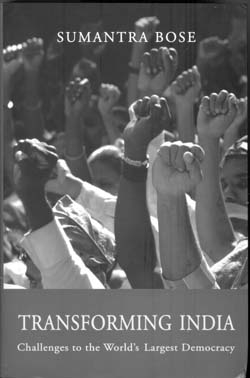The books under review are two additions to the long and distinguished line of books that have puzzled over the improbable success of democracy in India. Sumantra Bose starts off by recalling Seymour Martin Lipset’s view that ‘the more well-to-do a nation, the greater the chances that it will sustain democracy’. Ashutosh Varshney invokes the work of Prezeworski and others, who established that income was the best predictor of democracy. Both stress that India has remained democratic against the odds. But perhaps it should not be surprising if India does not fit an academic mould or conform to political theory, simply because, on so many counts, including its size and heterogeneity, it is sui generis. Theses developed from the experience of smaller nations may not fit a subcontinent.
February 2014, volume 38, No 2

